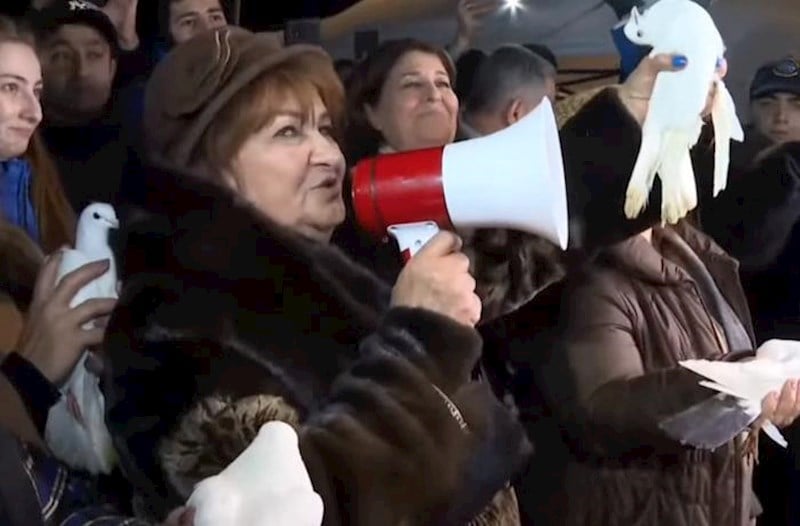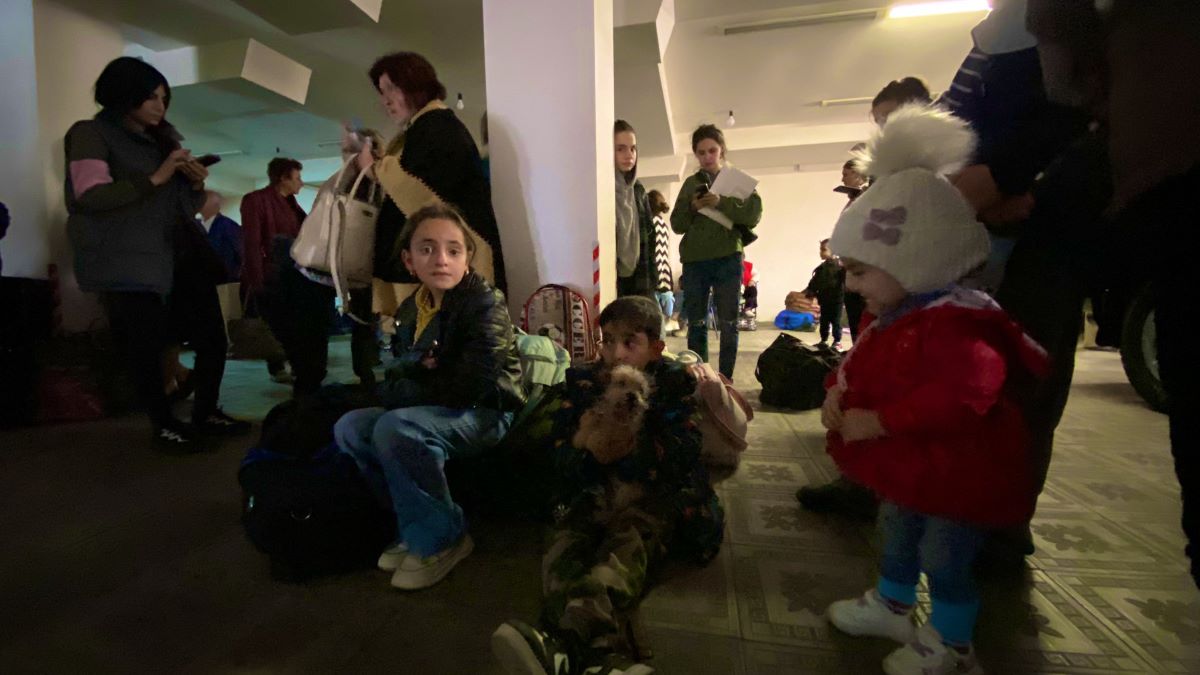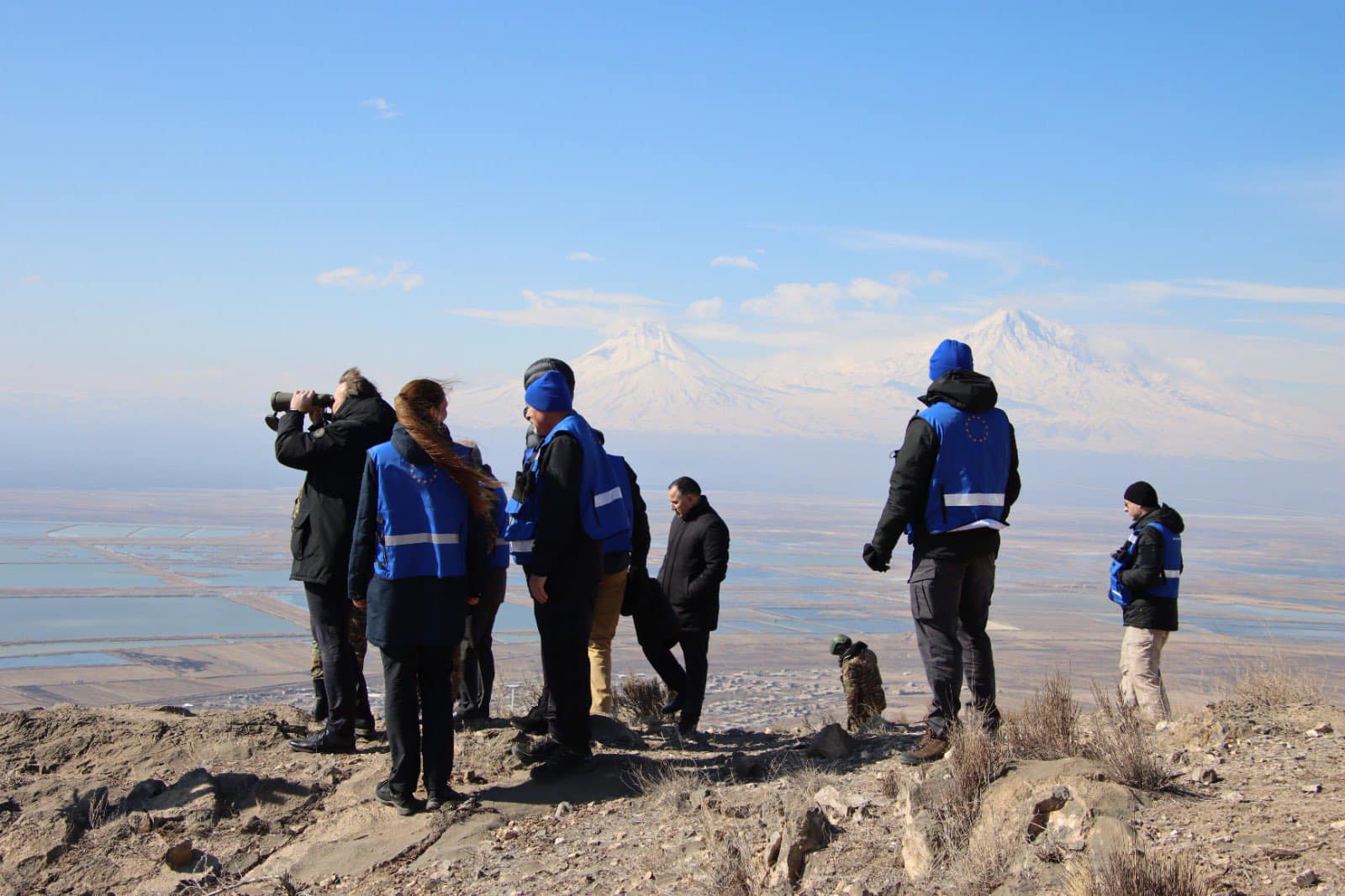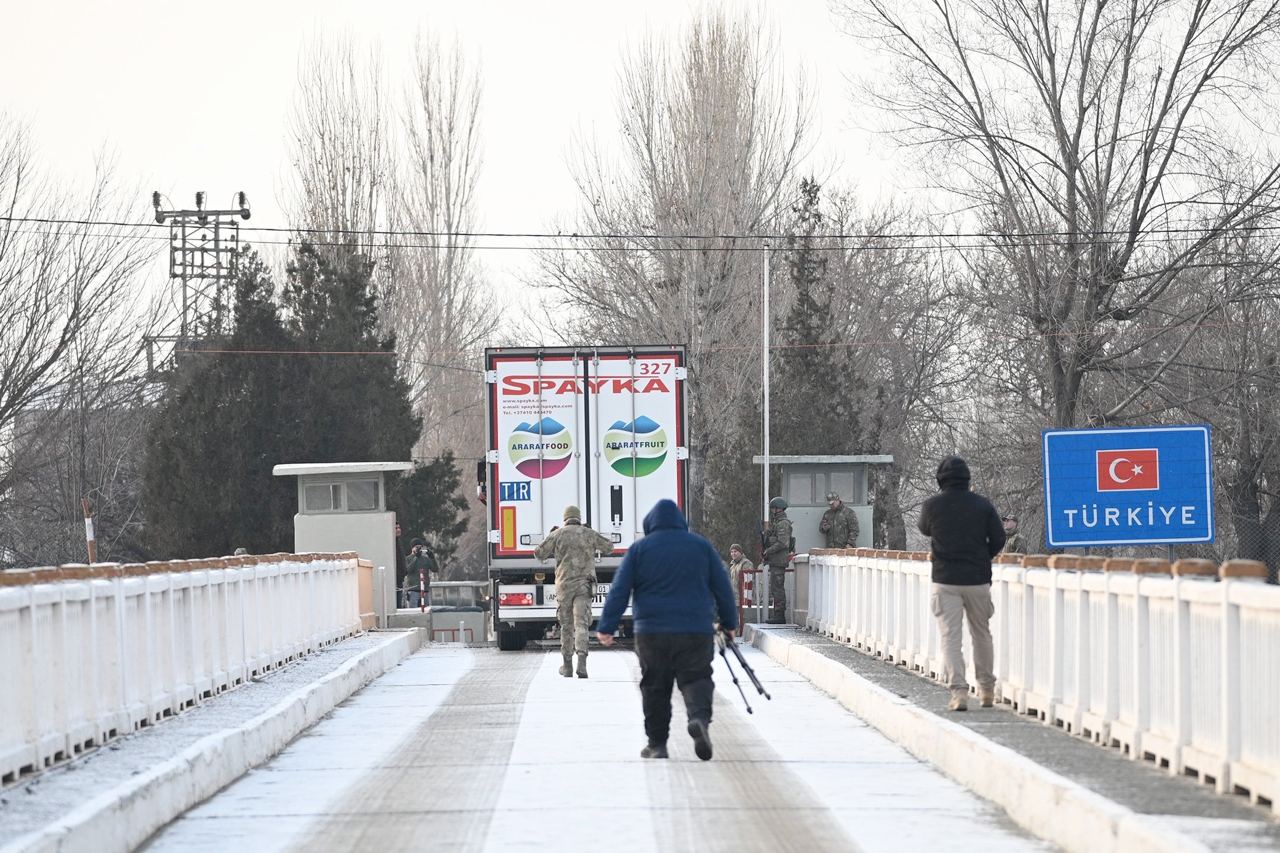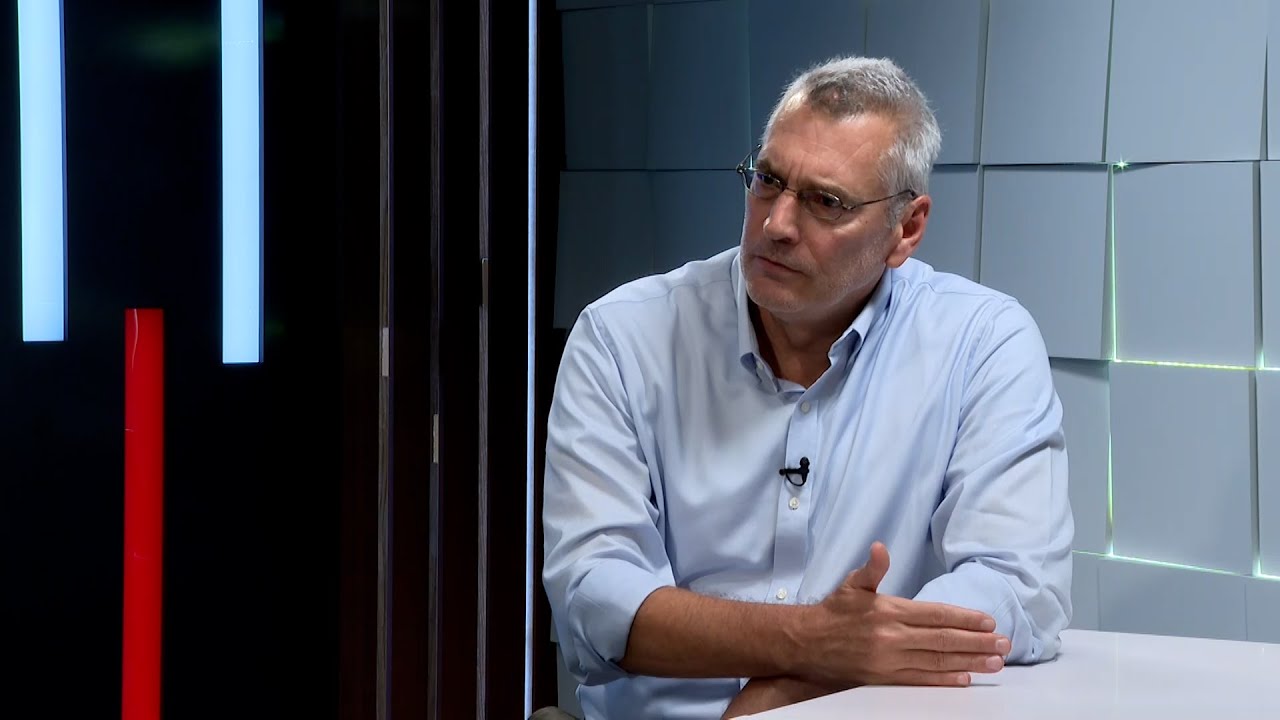2023 in Armenia: dramatic, disappointing and hopeful developments
Highlights of 2023
The year turned out to be a difficult one for Armenia, with many unexpected, sobering, disappointing, dramatic, and at the same time encouraging events. In this article, we recall those most discussed in society and influential to the present and future of the country.
- “Baku does not recognize Armenia’s territory”: opinion on the “West Azerbaijan” narrative
- “CSTO technically cannot create a unified air defense system”: Opinion from Yerevan
- Armenia-EU alliance. How to reach this level of relations? Opinion
1. Armenia lived the news from Nagorno-Karabakh
In 2023, the attention of the entire country was focused on the events in Nagorno-Karabakh. The Lachin corridor, the only road connecting the region to Armenia, has been blocked since December 12 last year.
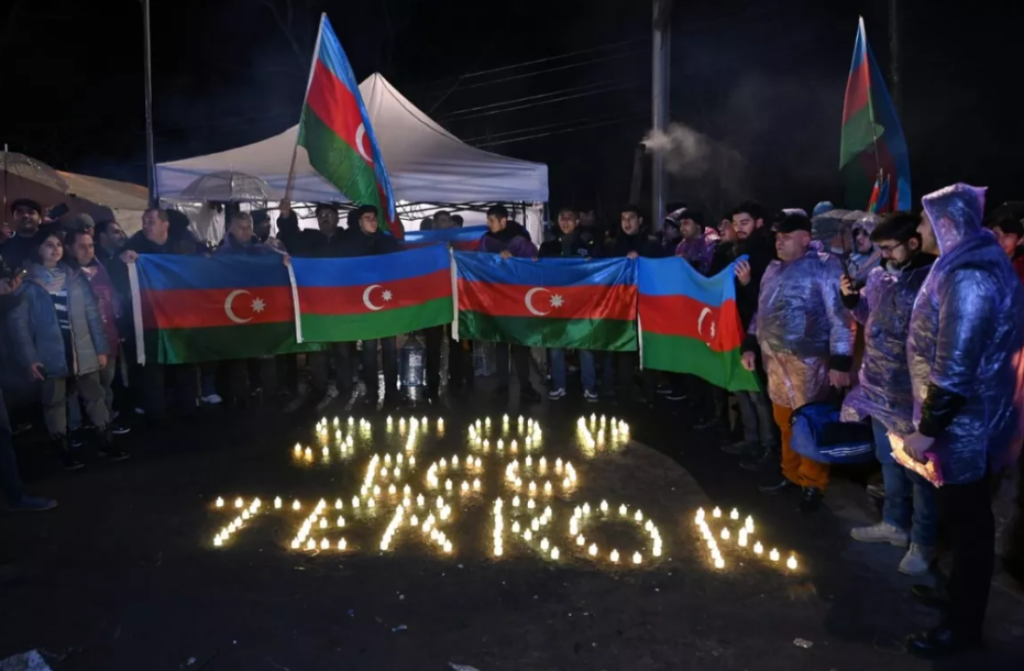
The road was blocked by Azerbaijanis calling themselves eco-activists. They demanded monitoring of local mines, justifying their action by “environmental risks of illegal exploitation of minerals”.
Highlights of 2023
On the first day of the blockade the Armenian Prime Minister said: “Azerbaijan is organizing, preparing to carry out genocide in Nagorno-Karabakh”.
In February, the UN International Court of Justice applied an interim measure at Armenia’s request and obliged Azerbaijan to ensure unimpeded movement along the Lachin corridor. However, Baku has not complied with the court’s decision.
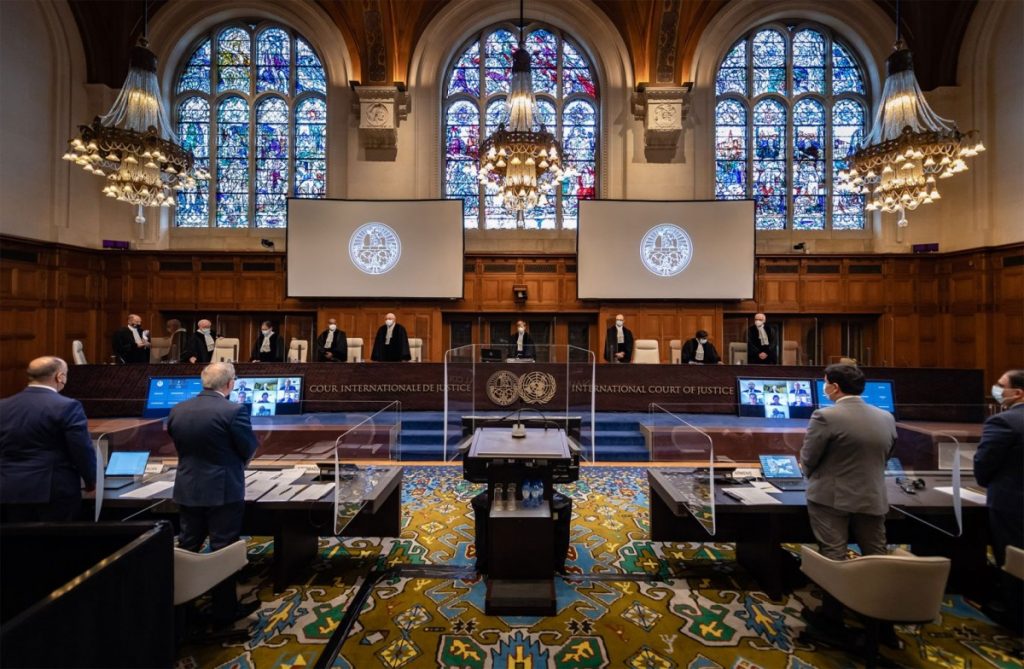
In April, the Azerbaijani Border Guard Service announced the installation of a checkpoint in the control zone of Russian peacekeepers, at the entrance to the Lachin corridor. The peacekeepers offered no resistance. The Azerbaijanis blocking the road left the territory, and control over the corridor was transferred to Azerbaijani state bodies.
Highlights of 2023
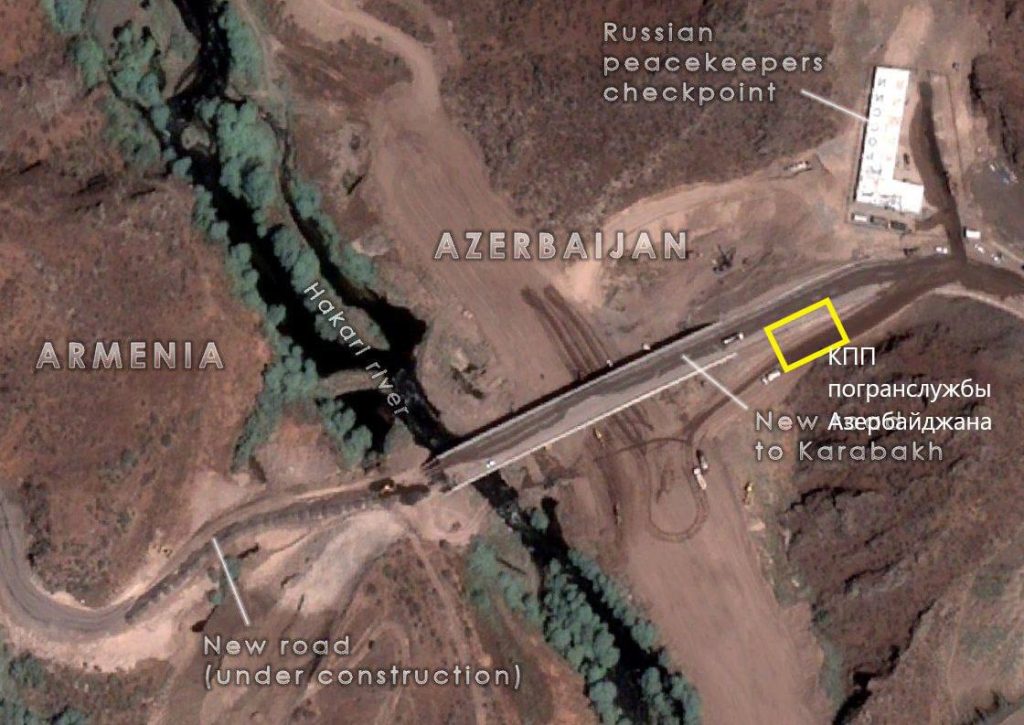
Since June 15, the humanitarian crisis in Nagorno-Karabakh has deepened. Azerbaijan blocked the entry to NK not only of people, but also of humanitarian cargo. In August it was reported that one resident had died of starvation.
There were spontaneous protests in Yerevan in front of the UN office and embassies.
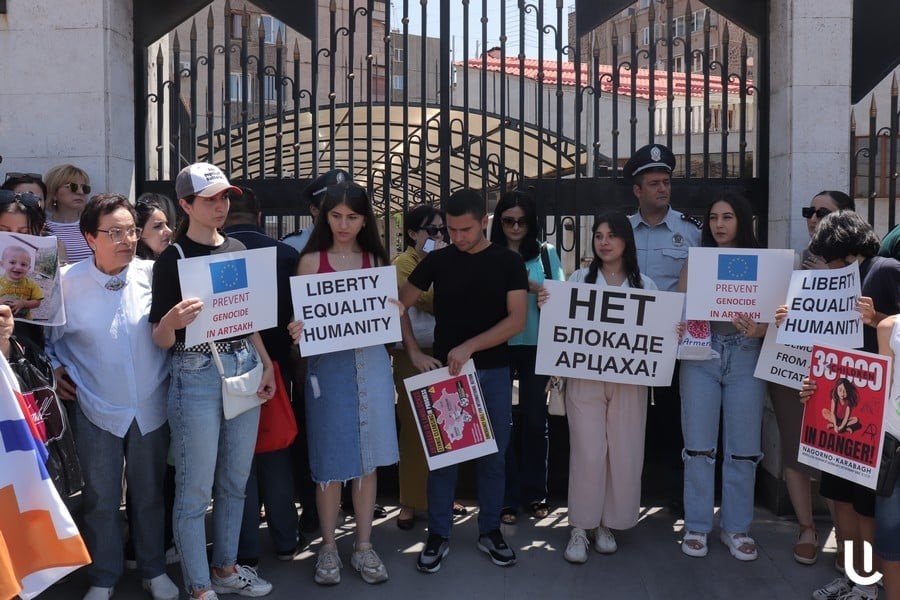
On July 26, the Armenian government sent 19 trucks with humanitarian cargo to NK. They delivered 400 tons of aid to the entrance of Lachin corridor and stood there for 2 months. Azerbaijan did not allow them to deliver the cargo to NK. The same fate befell 10 trucks with humanitarian aid sent to Armenians from France.
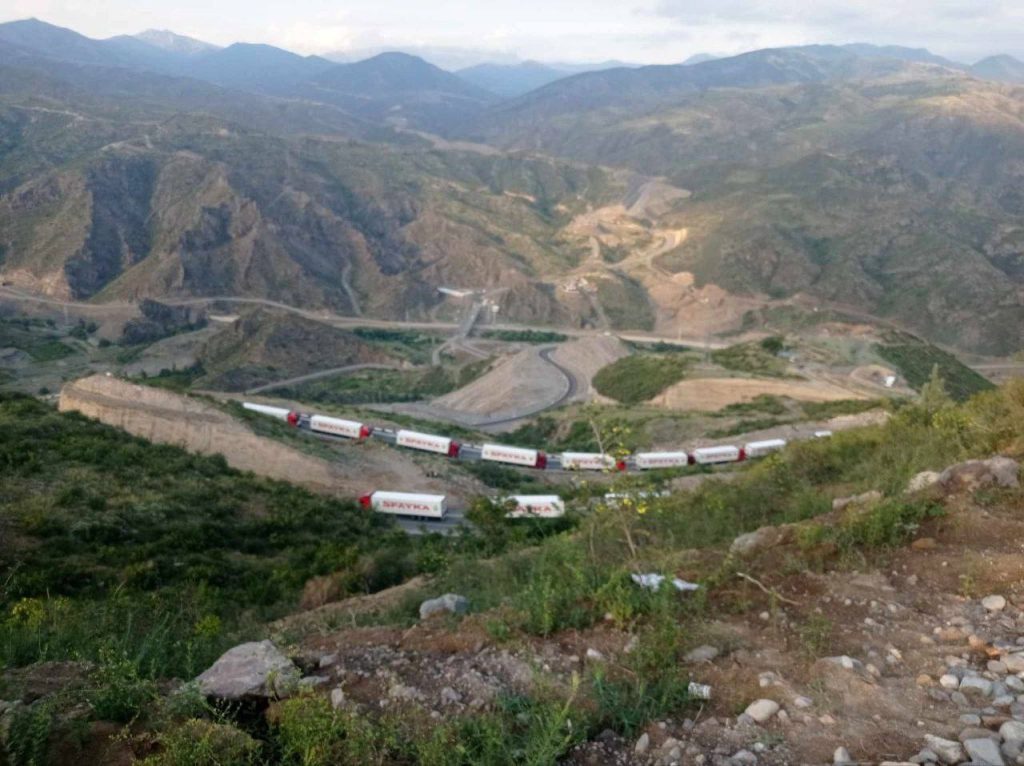
On September 19, Azerbaijan launched military actions, which it called an “anti-terrorist operation”. Official Baku announced that it was shelling only military facilities. Meanwhile, local residents shared photos and videos of destroyed neighborhoods on social networks.
Highlights of 2023
Azerbaijan is shelling civilian residential areas of #Stepanakert This is a building next to us with no military target in vicinity. pic.twitter.com/EZtJsAEBNg
— Siranush Sargsyan (@SiranushSargsy1) September 19, 2023
The war lasted only a day. According to official data, 200 people were killed on the Armenian side and 400 were wounded. There were civilians among the dead and wounded.
On September 20, the NK leadership announced that it accepts the ceasefire proposal. On September 21, the first meeting of representatives of Karabakh and Azerbaijan took place in Yevlakh. All military equipment was handed over to Russian peacekeepers.
On September 28, President of the unrecognized NKR Samvel Shahramanyan signed a decree that from January 1, 2024 the Nagorno-Karabakh Republic will cease to exist.
Before that, on September 24, Azerbaijan opened the Lachin corridor in one direction, and in less than a week, all Armenians left their homes and moved to Armenia. This was a demonstration of refusal to be part of Azerbaijan.
Highlights of 2023
The leaders of the unrecognized republic also tried to leave NK, but eight of them were detained by Azerbaijanis. Former Presidents Arkady Ghukasyan, Bako Sahakyan and Araik Harutyunyan, State Minister Ruben Vardanyan, Deputy Commander of the Defense Army David Manukyan, Defense Minister Levon Mnatsakanyan, Foreign Minister David Babayan, as well as the then incumbent Speaker of the Parliament David Ishkhanyan, are currently being held in Baku prisons.
They are accused of war crimes, organizing terrorist actions and financing them.
The rest of the NK residents traveled to Armenia, standing in a traffic jam on the Khakari Bridge for two or three days. Right at the Armenian border, they were registered for assistance and temporary housing.
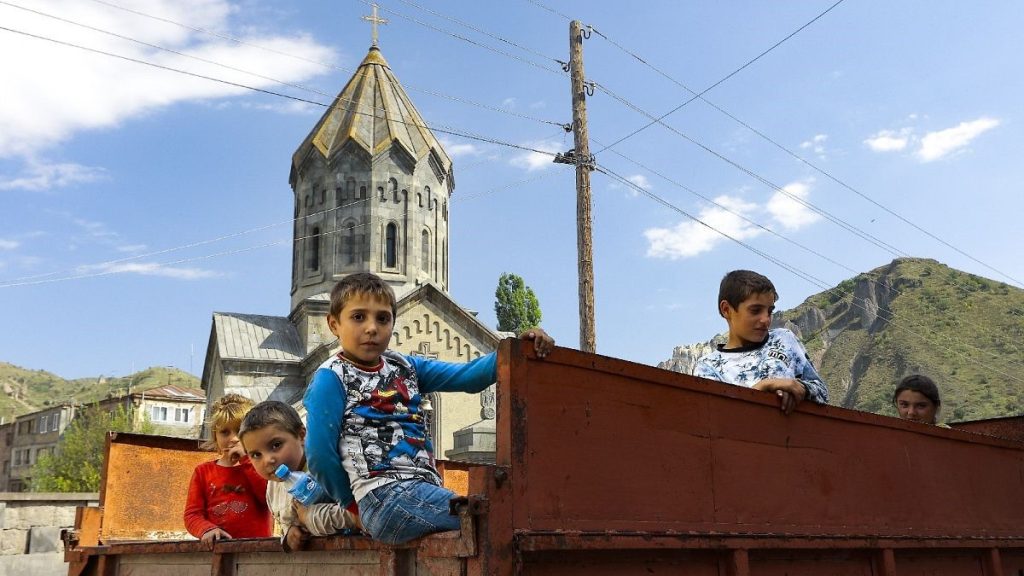
Official Yerevan said that in this way “Azerbaijan has achieved its goal of ethnic cleansing and deprivation of the homeland of NK Armenians”.
2. EU observers on the Armenian-Azerbaijani border
Since the Karabakh war in 2020, tensions on the Armenian-Azerbaijani border have not subsided. The indifferent attitude and inaction of Russia, Armenia’s strategic ally, actually forced the government of Nikol Pashinyan to take care of diversifying security mechanisms.
Highlights of 2023
One step in this direction was the deployment of an EU observation mission along the Armenian-Azerbaijani border.
In January 2023, the EU decided to send a new civilian mission to Armenia, this time for two years.
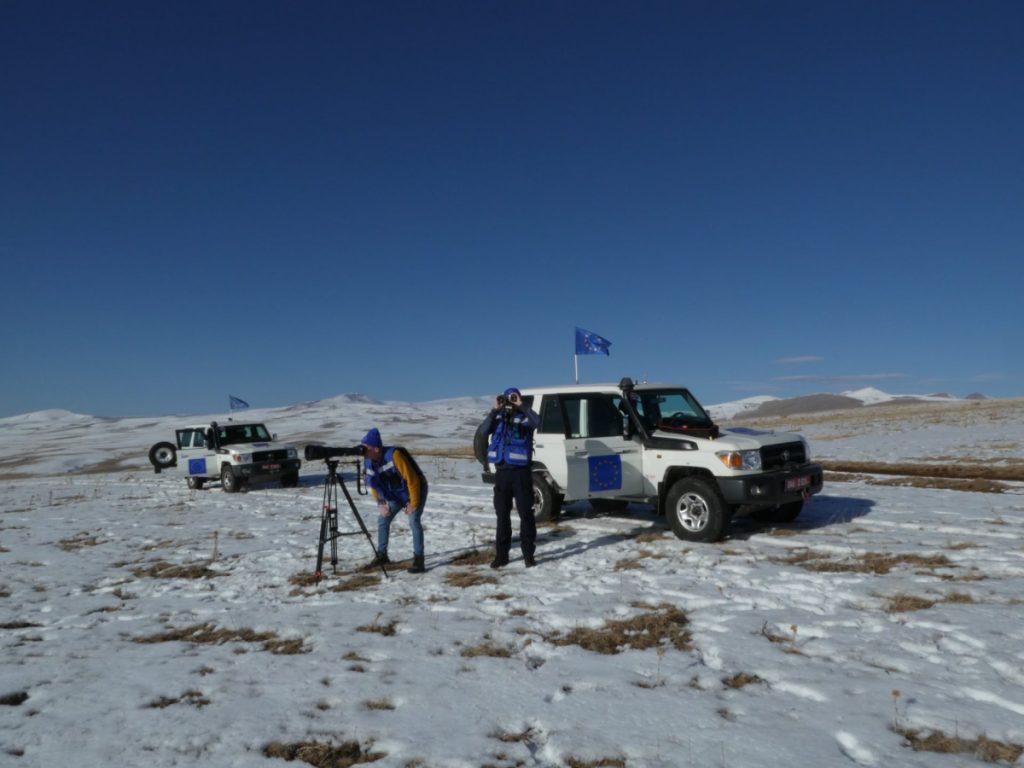
Before that, EU observers were stationed on the Armenian side of the Armenian-Azerbaijani border for only two months in October 2022.
The purpose of the mission is to monitor the border with Azerbaijan and help stabilize the security situation in the border regions.
In 2023 the mission expanded the geography of its operational offices and the number of patrols to ensure the effectiveness of its work. Five operational offices are already in place, and the number of observers has increased from 40 to 209.
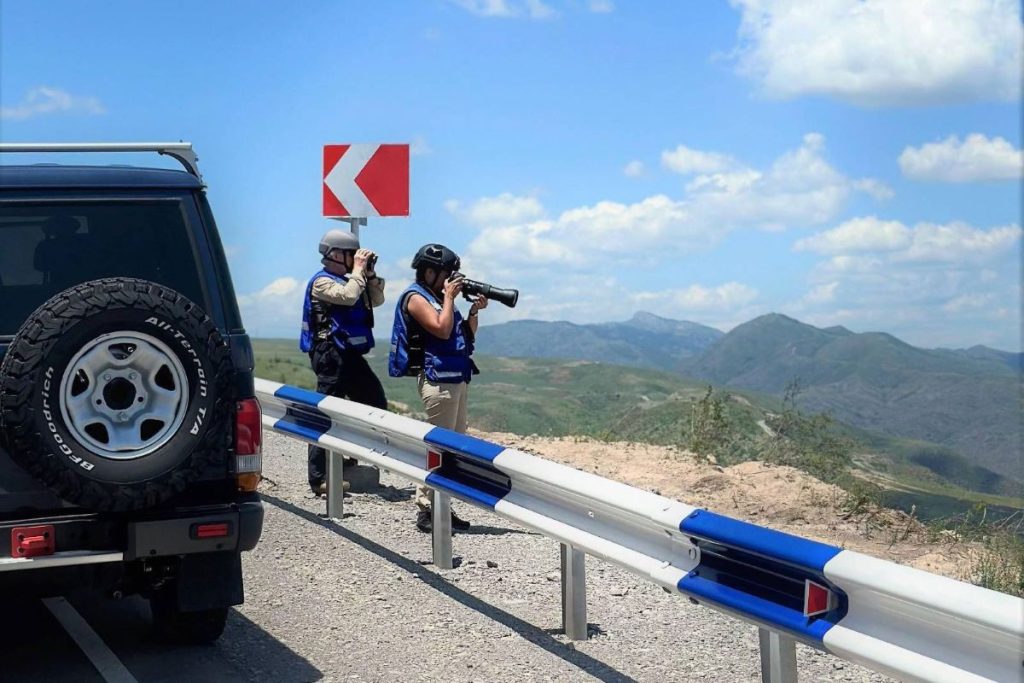
The observers include French gendarmes and German police officers and representatives of 25 EU member states. The observers are unarmed and merely monitoring the situation along the border and reporting what they see to Brussels.
3. The process of normalizing relations with Turkey was much promised at the beginning of the year, but ended with nothing
On January 6, Turkey announced the lifting of a ban on direct cargo air transportation. Special representatives for normalization of relations between the two countries agreed to this in July 2022. Another agreement, reached during the same meeting, to allow “citizens of third countries to cross the Armenian-Turkish land border”, has not yet been implemented.
In 1991, after the collapse of the USSR, Turkey de facto recognized Armenia, but still refuses to establish diplomatic relations. Since 1993, Turkey has unilaterally closed its air and land borders with Armenia. Through the efforts of the international community, the air border was opened in 1995, while the land border remains closed.
Talks about normalization of Armenian-Turkish relations intensified after the 2020 war. In December 2021, Yerevan and Ankara declared their readiness to take steps towards their settlement. The countries appointed special representatives for this process. They have already met four times, but there have been no significant developments in the outcome of the talks so far.
After the devastating earthquake in Turkey in February 2023, the Armenian authorities sent humanitarian aid to the victims. Armenian rescuers also went to Turkey.
The Margara Bridge on the border with Turkey, closed since 1993, opened on February 11 for Armenian trucks carrying 100 tons of humanitarian cargo.
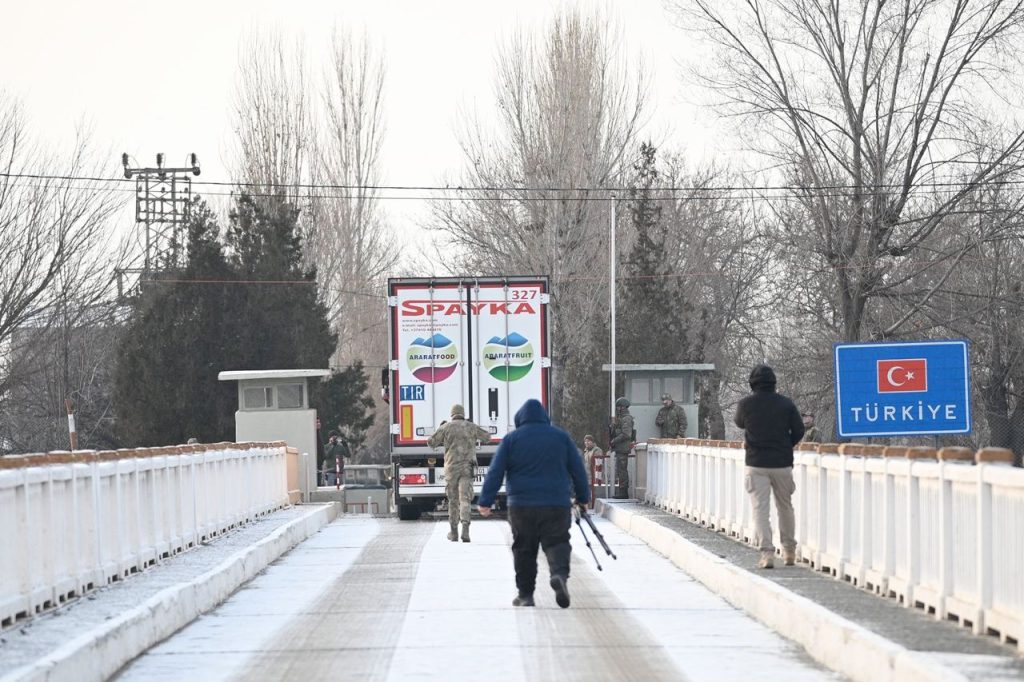
On February 15, the delegation headed by the RA Minister of Foreign Affairs left for Ankara. Ararat Mirzoyan met with his Turkish counterpart Mevlut Cavusoglu, and an extended meeting was also held.
“This is an historic visit, which took place as a result of Armenia’s decision to support a neighbor in need of assistance. We hope that this is a good sign for the future development of Turkish-Armenian relations,” Toivo Klaar, the European Union’s Special Representative for the South Caucasus, wrote on Twitter.
In May, the Speaker of the Armenian Parliament traveled to Turkey. Alen Simonyan participated in the Parliamentary Assembly of the Black Sea Economic Cooperation.
On June 3, Armenian Prime Minister Nikol Pashinyan attended the inauguration of the Turkish President. It was the first time that the Armenian leader was invited by Erdogan to participate in such a solemn event.
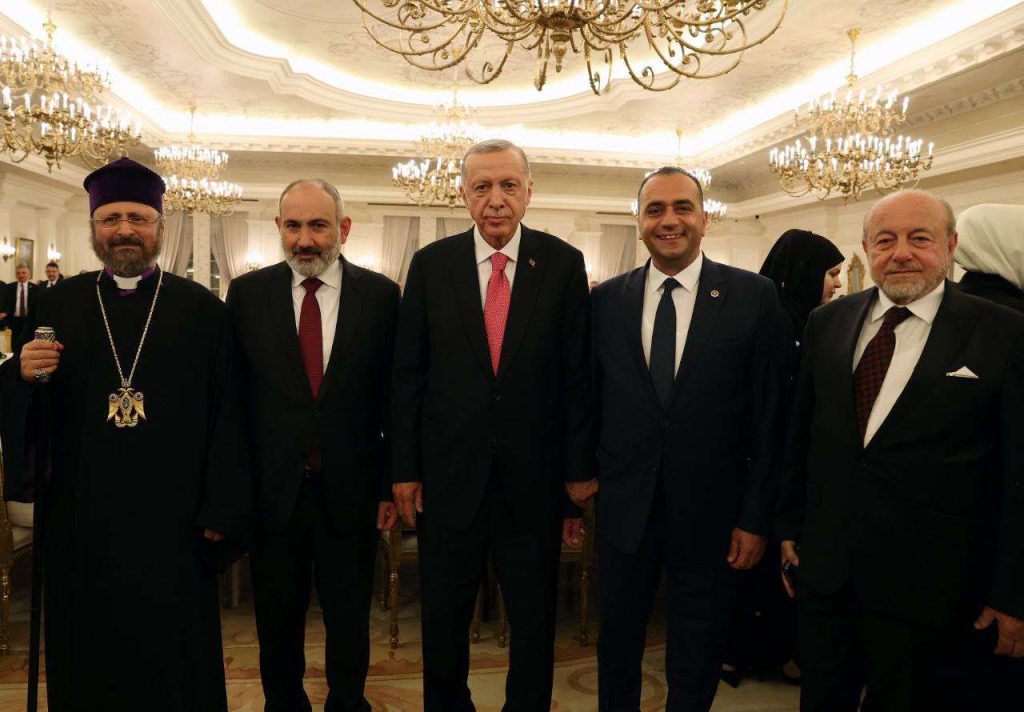
In 2023, two football matches were held between the national teams of Armenia and Turkey. The Yerevan match was the center of attention of the whole country, not only soccer fans.
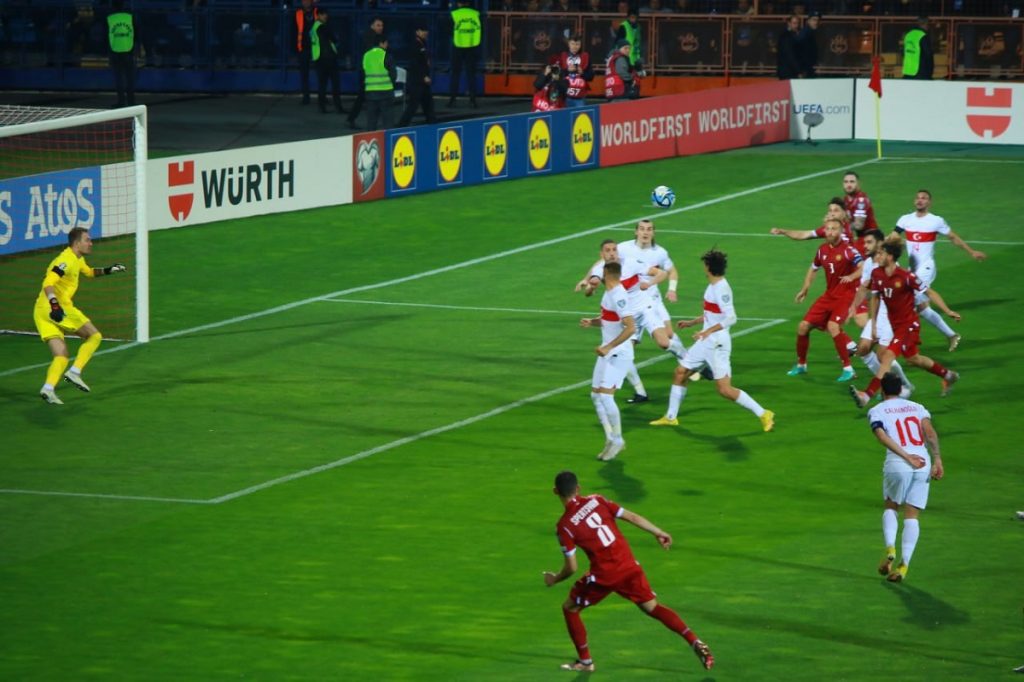
Matches with the Turkish national team in Armenia are associated with a previous attempt to normalize relations, dubbed “soccer diplomacy.”
On September 6, 2008, then Turkish President Abdullah Gul arrived in Armenia, and together with Armenian President Serzh Sargsyan, they watched a soccer match between the national teams of the two countries. This visit started the process called “soccer diplomacy”. A year later, the countries signed protocols to normalize relations, but they were never ratified.
Active contacts in 2023 did not lead to progress, as Armenian experts assumed. Turkologist Mushegh Khudaverdyan argued that Ankara will not take practical steps until Armenian-Azerbaijani relations are settled.
“It will be possible to talk about the improvement of Armenian-Turkish relations only after the signing of a peace treaty between Armenia and Azerbaijan,” he told JAMnews.
4. Armenia-Russia relations have never been so tense
For a long time the Armenian authorities have been openly criticizing Russia for failing to fulfill its commitments.
The reason for the Armenian side’s discontent is the inaction of the Russian Federation and the Russian military bloc of the CSTO, which failed to fulfill its obligations to protect the sovereign territory of its ally when the Azerbaijani Armed Forces advanced deep into Armenian territory.
The inaction of the Russian peacekeeping forces deployed on the territory of Nagorno-Karabakh to protect the Armenian population is also regarded as nothing short of scandalous in Armenia.
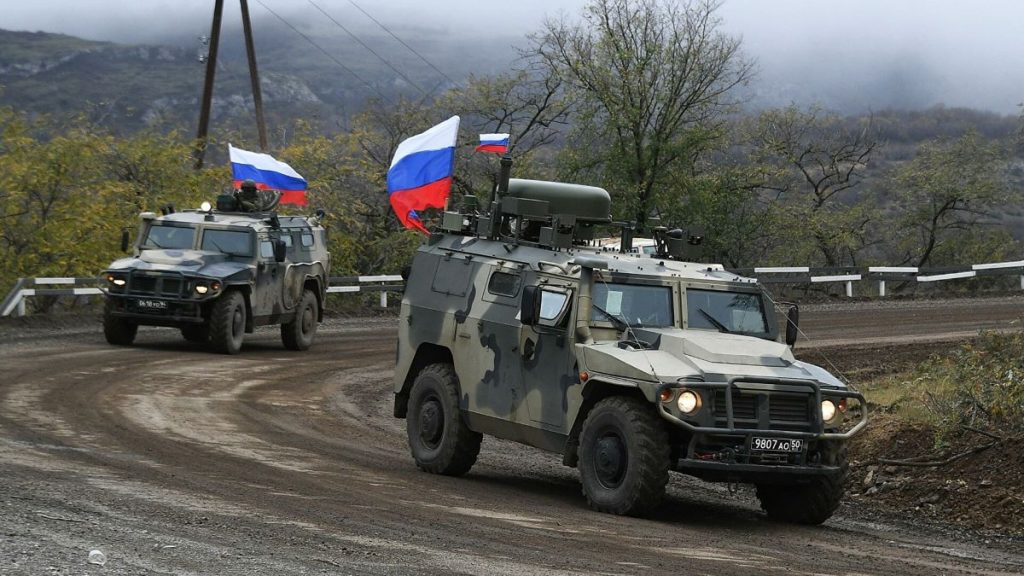
Recently, in addition to public criticism, the Armenian authorities have boycotted all events and meetings within the CSTO and other Russian integration structures.
A significant part of Armenia’s residents, politicians and analysts consider Russia’s position incompatible with its status as a strategic ally. And the country’s authorities express this point of view directly, which is perceived in Russia as a “flight to the West”. However, most Armenian political analysts do not share the opinion that Armenia is changing the vector of its foreign policy.
In Russia, the behavior of Armenia’s leadership causes dissatisfaction expressed by both officials and Russian experts.
The negative reaction of the Russian side, in particular, was caused by a visit by the wife of the Armenian Prime Minister Anna Hakobyan to Kiev, and with humanitarian cargo.
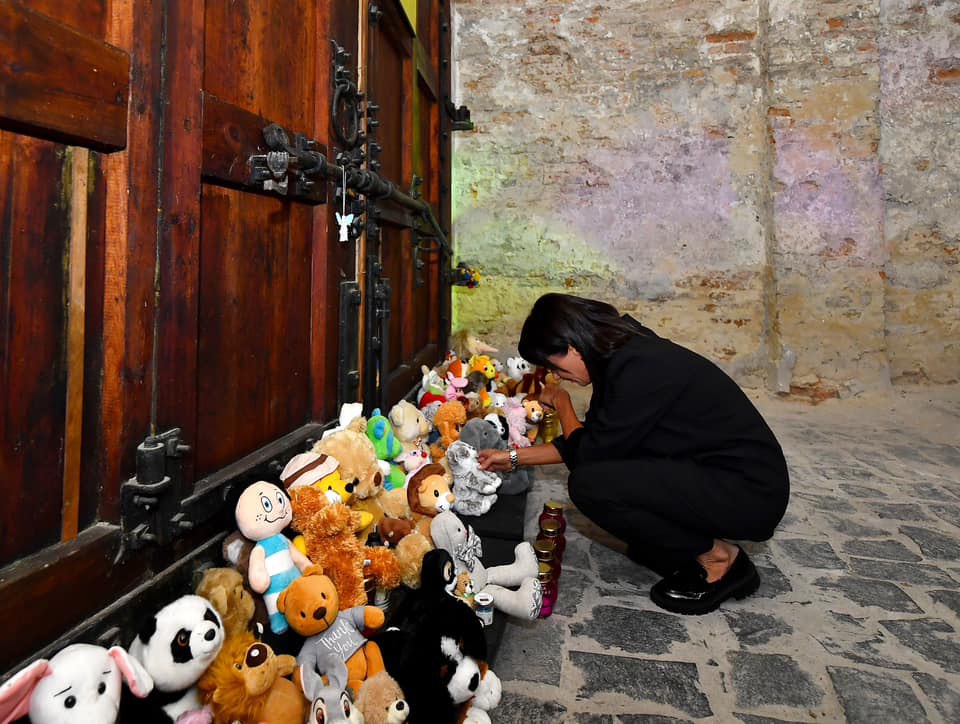
The ratification of the Rome Statute caused an even greater resonance in Russia.
The Rome Statute is the international treaty that established the International Criminal Court. Its creation was explained by the need for an independent court to resolve cases related to genocide, war crimes and crimes against humanity. On March 17, the ICC issued an arrest warrant for Russian President Vladimir Putin as a suspect in the illegal deportation of Ukrainian children. All countries that have ratified the treaty are obliged to extradite him to the court if he appears on their territory.
There are periodic statements from Armenia that the ratification of the document is not directed against Russia and was necessary “to prevent Azerbaijani encroachments on Armenia’s sovereign territory”.
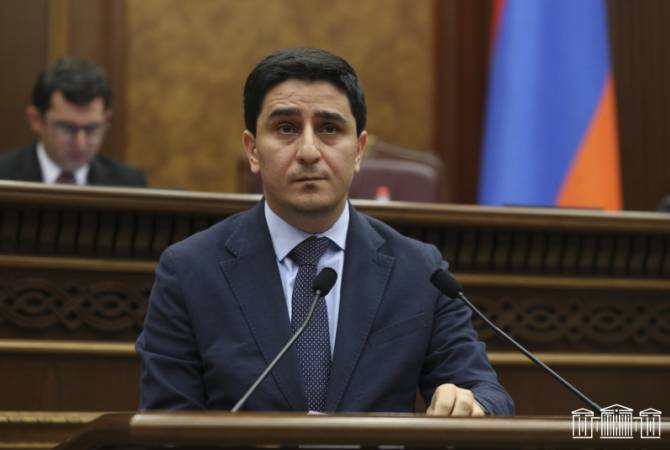
“Any serious crime committed on the territory of the Republic of Armenia will fall under the jurisdiction of the ICC, and for those who intend to commit such a crime, it will have at least a deterrent effect. Taking into account the fact that the armed formations of Azerbaijan are still on the sovereign territory of Armenia, ratification is justified,” the country’s representative on international legal issues, Yeghishe Kirakosyan, said after the vote.
Judging by the ongoing discussion in Russia, this information is not being taken seriously.
Highlights of 2023
Moscow also viewed with concern the Armenian-American joint exercise “Eagle partner 2023” (Eagle partner 2023) organized in Armenia in September.
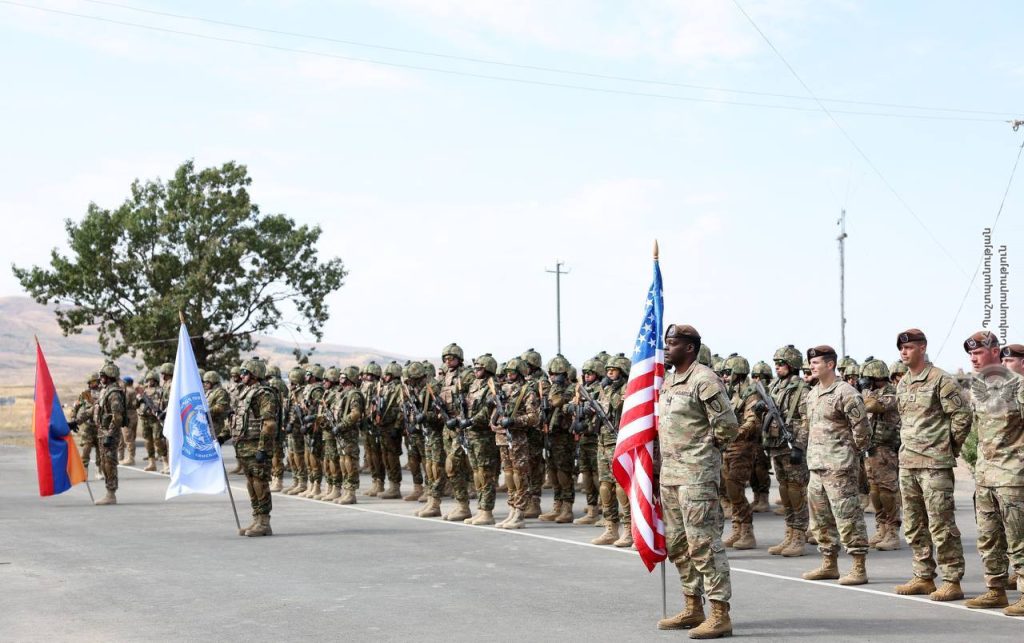
The Russian Foreign Minister said he sees “nothing good in an aggressive NATO country trying to penetrate the Transcaucasus.”
5. Armenia's new security partners
This year, the Armenian Prime Minister and the Secretary of the Security Council openly talked about Russia’s failure to supply arms worth hundreds of millions that had already been paid for, with no hint of the money even being returned.
In parallel, Armenia was buying weapons from India, signing agreements on the supply of non-lethal weapons from France and on defense cooperation with Britain.
“Armenia has made a clear decision to change its foreign policy and distance itself from Moscow. In my opinion, Armenia has already started to get closer to us. They are demanding more cooperation, more political dialog with NATO. We welcome these decisions by our partners, which in our view contribute to the stabilization of the region,” Javier Colomina, NATO Secretary General’s Special Representative for the South Caucasus and Central Asia, commented.
Highlights of 2023
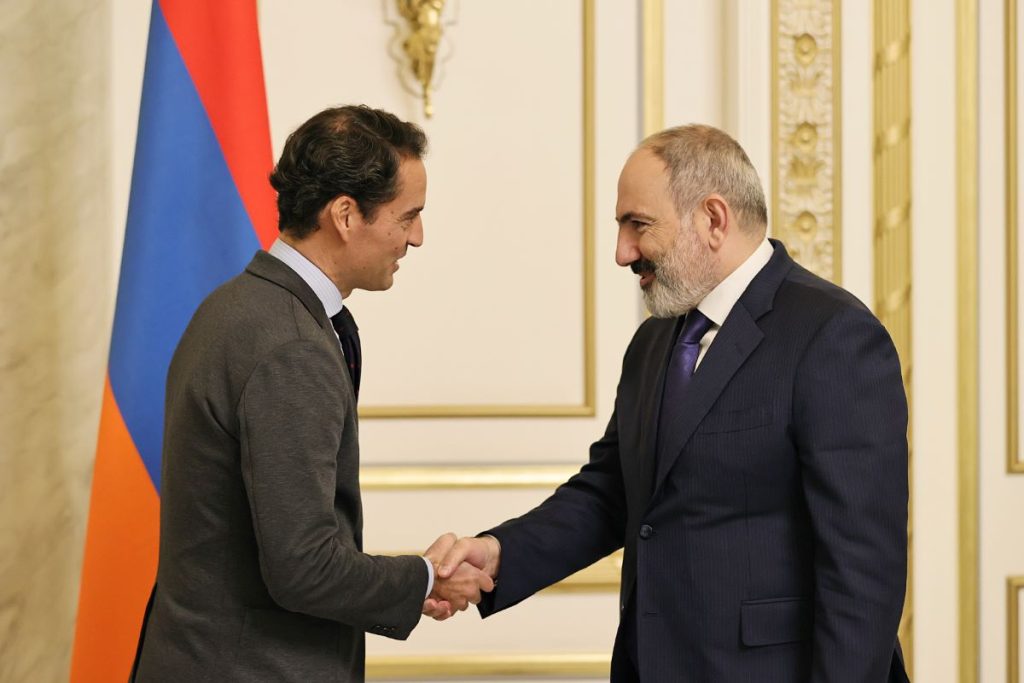
6. Direct negotiations with Azerbaijan
On November 30, a meeting of the commissions on delimitation and border security issues was held on the border between Armenia and Azerbaijan, for the first time without the participation of mediators.
Hours after the meeting, the sides unexpectedly issued a joint statement:
“Baku and Yerevan share the view that a historic opportunity has presented itself to achieve long-awaited peace in the region.”
As a result of the signing of this document, 32 Armenian prisoners of war held in Baku returned home, Armenia returned two soldiers to Azerbaijan.
Highlights of 2023
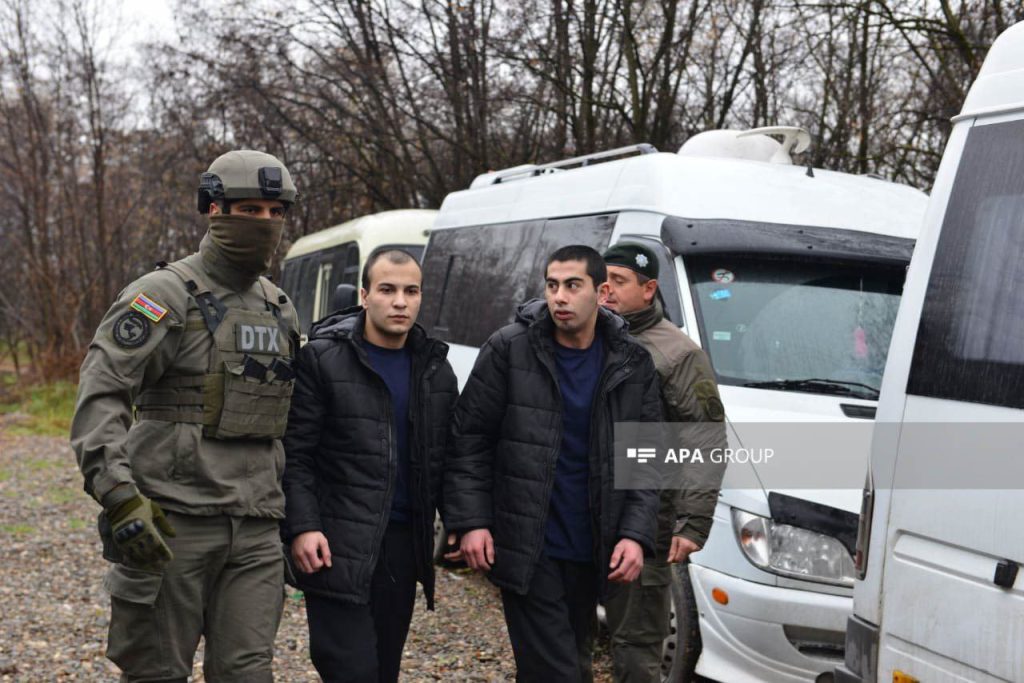
7. Informal Pashinyan-Aliyev meeting in St. Petersburg
On December 26, the Armenian Prime Minister flew to St. Petersburg to participate in the meeting of the Supreme Eurasian Economic Council. This visit took place after a long boycott of meetings in Russian integration structures. According to Armenian political analysts, Pashinyan could not refuse to participate, for on January 1, 2024, presidency of the EAEU bodies will pass to Armenia.
An informal meeting of the CIS heads of state was also held there, which the President of Azerbaijan also attended.
In the evening, photos of informal communication between Nikol Pashinyan and Ilham Aliyev appeared.
Highlights of 2023
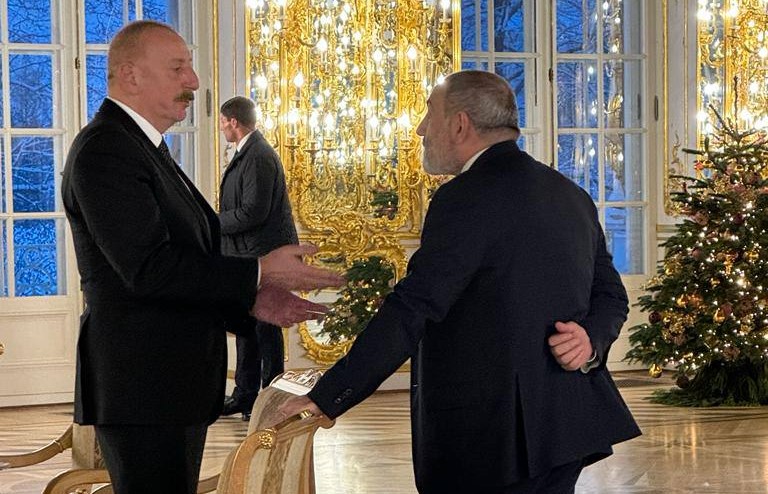
A spokeswoman for the Armenian prime minister said they “discussed issues related to the peace agenda between Armenia and Azerbaijan.”
Highlights of 2023










